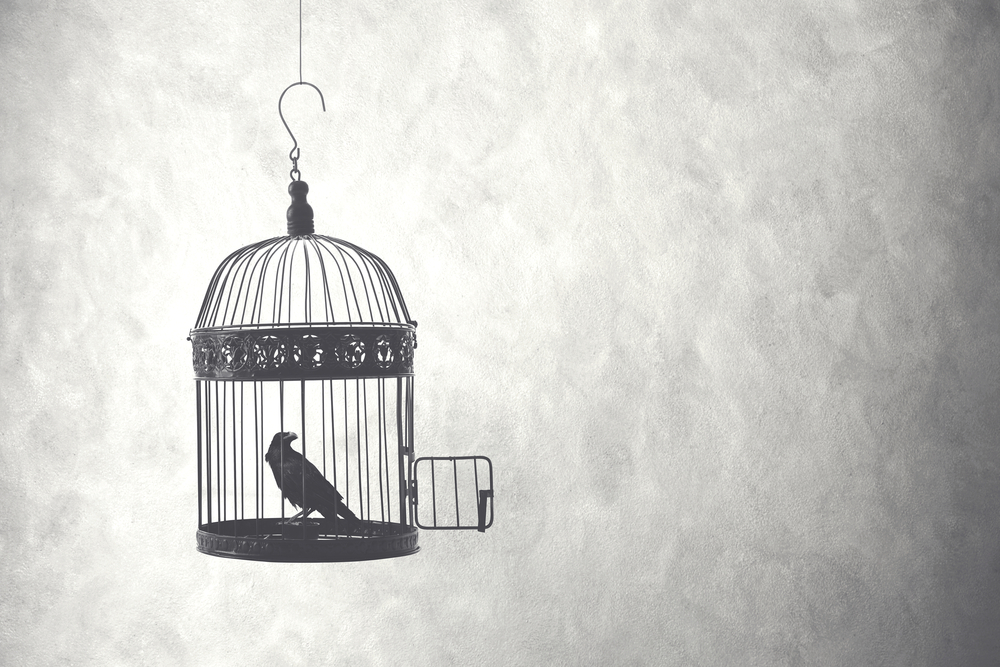
Martin Goodson
The Prison of my Opinions
What is the way?
Knowing which way to go can be difficult in trying circumstances but this 'way' can present itself to us if we can learn to let go.
 ©
© shutterstock
The problem of ‘my opinions’ is a very important point for us to bear in mind because there is a tendency to think that the training would be so much easier if we lived in a temple:
“The training would be so much easier if I could move this or change that or maybe if my job was different. If only I could have X….” Whatever it might be. You can just fill in the blank at this point. But this is not the Way. The Buddhist way is not to be constantly moving things around and changing things and wanting things always to be different. It says:
“Right here, right now, what is the Way? In these circumstances, what is the Way? What is the Middle Way, which is the Buddha’s Way, in these very circumstances?”
I remember something the late Trevor Leggett once said. He was a great friend of the Buddhist Society and almost single-handedly brought Judo to Britain. I recall his talking about the Dharma of Staying, and the Dharma of Going. You can think of the term ‘Dharma’ as being ‘the way things are right now’. He said: “In all circumstances, there’s a Dharma of staying, and a Dharma of going”. And if it’s a Dharma of staying and we get up and go, then we have left the Dharma; we’re going against it. And if it’s a Dharma of going and we stay, we’re also going against it. He says our task is really to obey the Dharma. When it’s the Dharma of staying we stay, and when it’s the Dharma of going we go.
This is very similar to another saying by the great Master Dogen. He ran a very big training monastery and wrote a set of instructions for the kitchen monks. It’s famous and it’s very practical. It’s about how to run a kitchen in a Buddhist monastery, but it’s also a great manual on Buddhist practice. There’s one lovely part in which he talks about how to arrange the pots, pans, plates and bowls in the kitchen cupboard. He says: “Those things that belong on the top shelf, should go on the top shelf. Those things that belong on bottom shelf should go on the bottom shelf.” Nowhere does he say what things should go on the top shelf or on the bottom shelf. Why not? Quite simply he’s writing for his monks, and he expects those monks to look at something and know. If you really give yourself into this looking, the item tells you whether it belongs on the top shelf or whether it belongs on the bottom shelf. And this has the flavour of the practice.
People often ask: “In these circumstances, what should I do?” I remember once when the Ven.Myokyo-ni was talking to somebody who complained about a certain situation that overwhelmed him. He didn’t know what to do. Ven. Myokyo-ni completely avoided the subject of what he should do, but she did say to him:
“When you’re in those circumstances - when the passions are up - they cause you to freeze. You cannot think. You cannot see. You do not know what to do. There’s no point in me telling you what to do because when you’re in that situation and the emotion comes on you will forget. And even if you don’t forget, you won’t be able to act on it because you will be paralysed. The best thing you can do when you’re in those circumstances is put your hands together and bow deeply. As you come up, look again at the situation. In that looking, after you bow, the solution will present itself to you. In other words, the situation itself is The Way and the situation itself will present the solution to you.”
There’s an old adage that if you give a hungry man a fish, he’ll eat for a day, but if you teach him how to fish he can feed himself for life. It’s the same thing with us. Often in circumstances of doubt people come up and say: “Tell me what I should do.” You can tell them and you’re either right or wrong. If you were right, they come back to you with the next problem and say: “Tell me what I should do.” If you were wrong they go to somebody else and say: “That was useless. You tell me what I should do”. But if such people learn to put their own hands together and to bow into the circumstances, when they look up, their own Dharma eye is that little bit opened and the information can come in.










